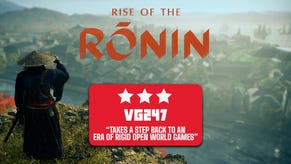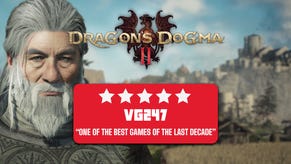Tacoma Review: Spacecation, All I Ever Wanted
Fullbright's long-awaited follow-up to Gone Home ups the intricate details, lowers the personal stakes.
This article first appeared on USgamer, a partner publication of VG247. Some content, such as this article, has been migrated to VG247 for posterity after USgamer's closure - but it has not been edited or further vetted by the VG247 team.
Early on in Tacoma, the latest game from Gone Home creators Fullbright, I'm in Station Administrator E.V. St. James' personal quarters. She's playing guitar softly, perched on her bed. I hunt around her vacant room, picking up objects and tossing them wherever (as I do in quiet games like these because I can't help myself). Eventually I find The Bell Jar by Sylvia Plath, bookmarked accordingly.
The twist is: E.V.'s not really there. A digital representation of her is; a digital ghost, if you will. I don't know much about E.V. at this point of Tacoma yet, but finding The Bell Jar almost tells me all I need to know about her. (Also, it gives me a sneaking suspicion that it was she who named the space station's resident feline Margaret Catwood.) It's Fullbright's strength, painting an environment the player can be absorbed in, but also here in Tacoma, becomes their weakness. Where the game's story is holding you away at arms' length, allowing you only to watch, learn, and never participate. To never feel.
Nonetheless, fastidious detail is what sets Tacoma apart from most story-driven games. We learn about these characters not only through the augmented reality ghosts of their past—the core of the narrative—but through everything else in their world. Through their emails, private messages, reading habits, living spaces. Like when I'm in botanist Andrew Dagyab's room, I see his life in full color. His plants, the book The Gardens of Versailles. I read messages between himself and his two most cherished loved ones left back on Earth: his son and his husband. I read a CC'd message he sent to everyone about some lovely orchids he successfully blossomed, along with a picture he attached. I learn more about Andrew in uncomfortable detail as I sift through his life than I do in seeing him talk with others.
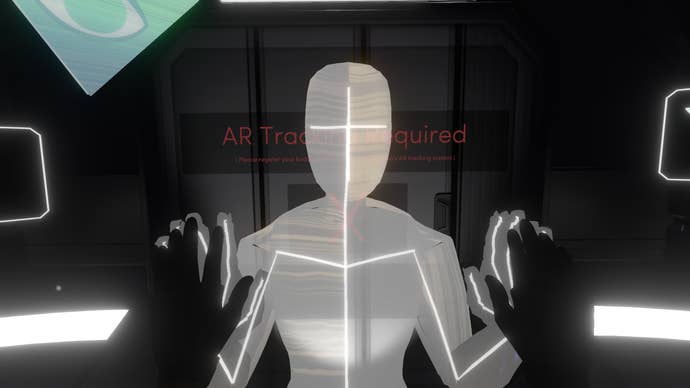
Tacoma is a story-driven game. You're plopped in a space station, acting as a spontaneous detective of sorts as you walk through the motions of what mysteriously befell the station's six-person crew. With Augmented Reality (AR) technology, you're able to witness pivotal moments that happened across the station across the past few days. You don't see necessarily every waking moment come across: just the essential ones. The first we really see is the impact when something hits the station, as their AR color-coded ghosts slightly glitch out and news of their oxygen supply being destroyed settles. While I never saw the panic on their faces (they're blobby AR ghosts after all), you sense it as their neon silhouettes hold each other tight, nervously pace, and anxiety heightens in their voices.
The six people are no strangers at this point, they're creeping upon a year spent aboard the space station. Two of them have been married prior to their time embarking on the mission. Two more are in a romantic relationship. Two others are close friends, confiding in each other in basement-like locales. Together, they're all friends; even if some have far testier relationships than others.
But I'm not any of them. Instead, I'm playing as Amy Ferrier, a subcontractor sent to Tacoma to retrieve the AI's data aboard the station. Our role is to uncover what happened here, and get it back safely to the corporation who employed us for this contract gig. Everything is strictly confidential here; meaning no secrets can be divulged elsewhere.
As I move across the space station, I attain the ability to recollect the movements and conversations had by the station's inhabitants—but never all at once. The hologram-like beings move at their own pace, as their conversations with others join together and separate; as they pace nervously alone in separate rooms. Tacoma redefines our access to some games' splintering narratives. Here we have the ability to pause, rewind, follow characters as they move in and out of rooms. Tacoma lets us experience their lives as the individuals do: as the stars of their own stories.
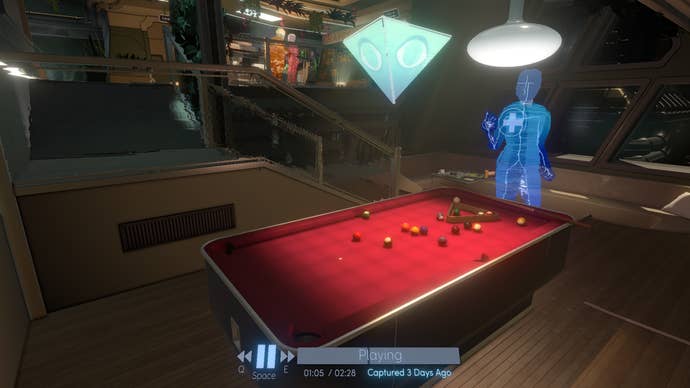
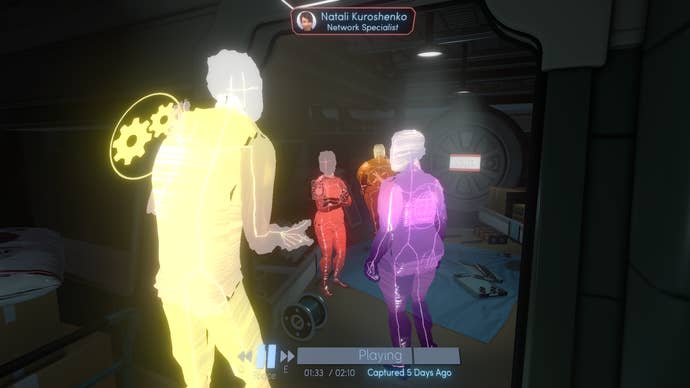
Rewinding, pausing and reliving points in time from new perspectives is an enlightening experience. In one scene, I stayed with a character after they had a heated conversation with another, where they solemnly asked the station's resident AI—the sultry voiced Odin—to pass along a message to his family in case something bad happened. Elsewhere in the station, at the same precise time, I watched another have a panic attack as Odin projected a soothing image of scenery as the AI talked them down. Tacoma's story isn't just about a single person's journey, but an entire crew in turmoil and their own internal battles.
The detail in Tacoma is often staggering, making the station feel less sterile and more lived-in. In the gym area, a crew member's locker has a half-eaten protein bar (complete with fully legible nutrition guides) and a fitness inspo poster. Elsewhere, a billiards table is fully playable, a distraction where I spent ten minutes placing all the pool balls into the triangular rack, placed the white cue ball precisely at the other end, held a pool stick, and shot them free. When I accidentally shot the cue ball into a pocket, it rolled into a section at the bottom of the table at the opposite end.
This acute attention to detail is what makes Tacoma sing. If only all its crew members were so memorable, and if only I felt less alienated from its future-world tale of space-bound vacation homes.
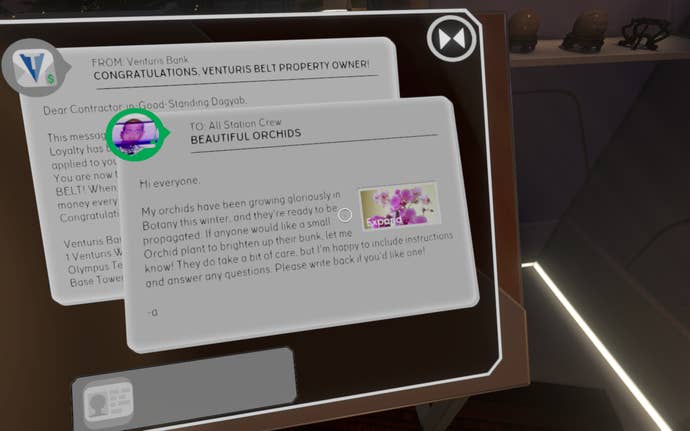
I won't mince words here—I believe Gone Home is one of the best games of the past decade. It was focused, heartfelt, with an incredible sense of place as you navigated the family home. Its unique, almost archaelogical way of storytelling was unmatched at the time of its release. Tacoma tries to up the ante a bit: instead of a family and sister's life you're exploring through a home, you're exploring the scattered lives of six people, as you're left to pick up the pieces. It's apparent who of the characters got the most love—by its end, four people feel like an afterthought, as two emerge as the most fully developed of the bunch.
As I go over my time with Tacoma, no moments stuck out as profoundly memorable. There was nothing like the scene where I discovered a Riot Grrrl cassette tape in Gone Home and popped it into a nearby player, and paced around the once lived-in room in surprise as it actually played. There was no cathartic ending, where everything built to that point led to a big sigh of relief and happiness. Tacoma, instead, just kinda ends.
At the very least, there's a unique future at play in Tacoma that permeates in the background of everything, growing more sinister over time. It's a future set in the year 2088, where probable-rich people can rent orbital vacation homes. It's a world where families are strained across the stars (families like Andrew's) and workaholicism plagues the corporation's most loyal employees. It's a world where the ritsy AirBnbs that plague metropolitan areas of today are probably long gone. The new real estate here is space, baby: and even space has its controversies, and incidental accidents.

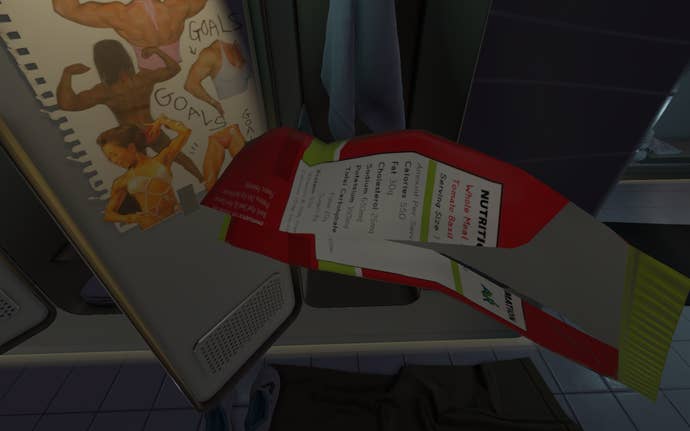
Despite its alluring world and intricate methodology for learning about characters, by Tacoma's finale I only found myself feeling like I really knew two characters, while the rest I only had ideas about. Characters like E.V. instead fell to the wayside. Where her reading habits communicated details about her, but her conversations as the propositioned station leader expanded little beyond that. Meanwhile characters like the resident medic Sareh, along with botanist Andrew, ended up feeling like the most detailed, nuanced characters across the entire game. I rooted for them. I cared about Andrew's relationships with his husband and son back on Earth, just as I did about Sareh's complicated inner strife. For everyone else, I felt less connected.
I liked Tacoma though, even with its fumbles. I felt more engaged watching (and rewinding, pausing, fast-forwarding) how things played out than I had in a lot of games like it. That's likely because it's the rare game where the player is in direct control of what, when, and how they see everything. Where everything is presented to us, sure, but it's our job, our responsibility, to see it in full. But the stories here don't feel 100 percent there; not fleshed out enough to warrant the player to rewind and pause obsessively like I was, nor to even try to catch a glimpse at the slightest visual social cue. What's here is worth the journey, but by its end, I still felt it was missing something. Missing complexity evenly across all its characters, maybe. Or maybe just a little more heart.
InterfaceRewinding, pausing, and fast-forwarding are all tight and easy, with an easily readable (and future-accurate) UI. Though supposedly in the year 2088 there's no such thing as serif fonts, making reading some of the finer printed details on objects a bit harder to read than they could have been. But I guess that's the future!
Lasting AppealTacoma is a short and sweet two-to-three hours long, depending on how investigative you are. On my playthrough, I spent a bit over three hours, but I expect I'll be on the longer spectrum.
ConclusionIt's rare to see game worlds as intricately detailed as the one in the space station of Tacoma. Even with its mostly lackluster characters and a story that never quite sinks its hooks into you, it's a spacecation you'll want to make time for. Hell, in what other game can I set up and play a game of billiards by myself as panicked digital ghosts worry about their livelihood? None, really.



